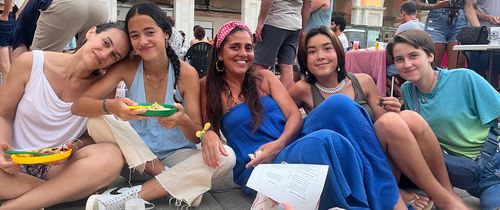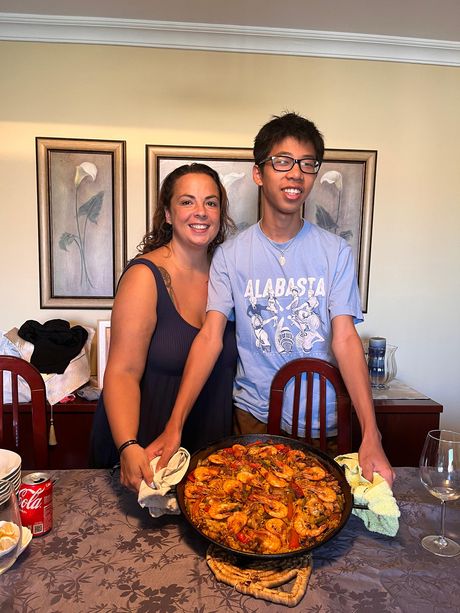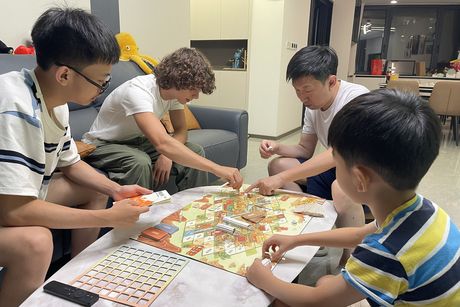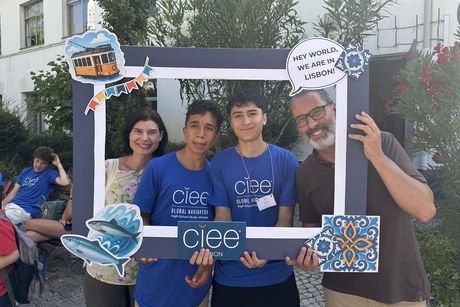
Homestays and Group Housing
CIEE Global Navigator High School Summer Abroad

Safe Stays That Immerse Teens in the Community
CIEE high school summer abroad programs offer a variety of housing options depending on the program type and/or location. These can include homestays or group housing.
To find out the type of housing available on a particular program, check out the Highlights in the top section of your high school summer abroad program page.
All student accommodations include:
- Meals (dietary accommodations vary by location)
- Access to laundry
- WiFi (connection speeds vary by location)

Housing Options
Homestays
Because there is no better immersion than living with locals, all CIEE Language & Culture Programs and many of our subject-specific programs include a homestay with a local host family.
Group Housing
Conversely, in locations where homestay options are less readily available, students live in CIEE selected group housing. Group housing options allow students to live and learn alongside their peers, fostering friendships, building independence, and a deeper understanding of other cultures, with the support of live-in CIEE staff.
What to Expect from a Host Family
Invested in the student’s success in the target language, host families are a core component of our Language & Culture programs, and a great source of support to students from all program types.
Host families are diverse, just like our students! No matter the family structure, it’s essential that they are excited to share their culture and experiences with participants and can ensure a safe and welcoming environment. Some examples of host families are:
- A young family with small children
- A single parent with a teenage son or daughter
- An elderly couple or a single woman
With host families, students get to practice what they learn in class, get to know local customs and traditions, explore the city, interact with family friends, and receive support and guidance.
What to Expect from a Host Family
Students will share breakfast and dinner with their host family each day. Lunch is provided, but the offerings vary by location.
Participant safety is our #1 priority! We carefully screen each family to ensure students are in a safe and comfortable living space. Our homestay selection process involves home visits, interviews with adults living in the home, and background checks (where permissible by local law).
Students receive their placements within the week before their high school summer abroad program destination. Students will have the opportunity to contact their host family for the first time as soon as they receive their placement.
Every family in our network is eager to share their country, language, food, and culture with students and learn about U.S. culture, too!
Host families only receive a small stipend from CIEE to cover student meals and any minor expenses. Their main motivation is intercultural exchange and helping students have a fun, safe, and enriching study abroad experience.
"Out of Your Comfort Zone" Podcast
Tune in to this podcast episode to hear from three alumni about their experience living in a homestay.
What to Expect from Group Housing
On some High School Summer Abroad programs, students are housed in group accommodations for the duration of their program. These accommodations vary widely based on what is available locally, but always include the presence of CIEE live-in staff. Group housing options allow students to live and learn alongside their peers, fostering friendships, building independence, and a deeper understanding of other cultures. In group housing, students typically share rooms and bathrooms with peers from their HSSA cohort.
All meals are provided while on program! Whether dining independently or in a group, students will enjoy a variety of meals and local cuisine throughout their stay.
Local CIEE staff carefully screen all group housing to assess safety and comfort. We evaluate security features carefully and work to ensure a safe, supportive environment throughout the program. CIEE staff provide live-in supervision to support a secure, respectful, and structured environment aligned with program goals and expectations.
More Information

Still Have Questions?
Check out our FAQ page for more information on the application, pre-departure process, costs, and more.

Further Assistance
For more help, call our team at 1-866-583-0332 or send us an email at hsabroad@ciee.org today.

Schedule a Call
If you want to schedule a call with a CIEE Enrollment Coordinator in your area, find a time on our bookings page.





